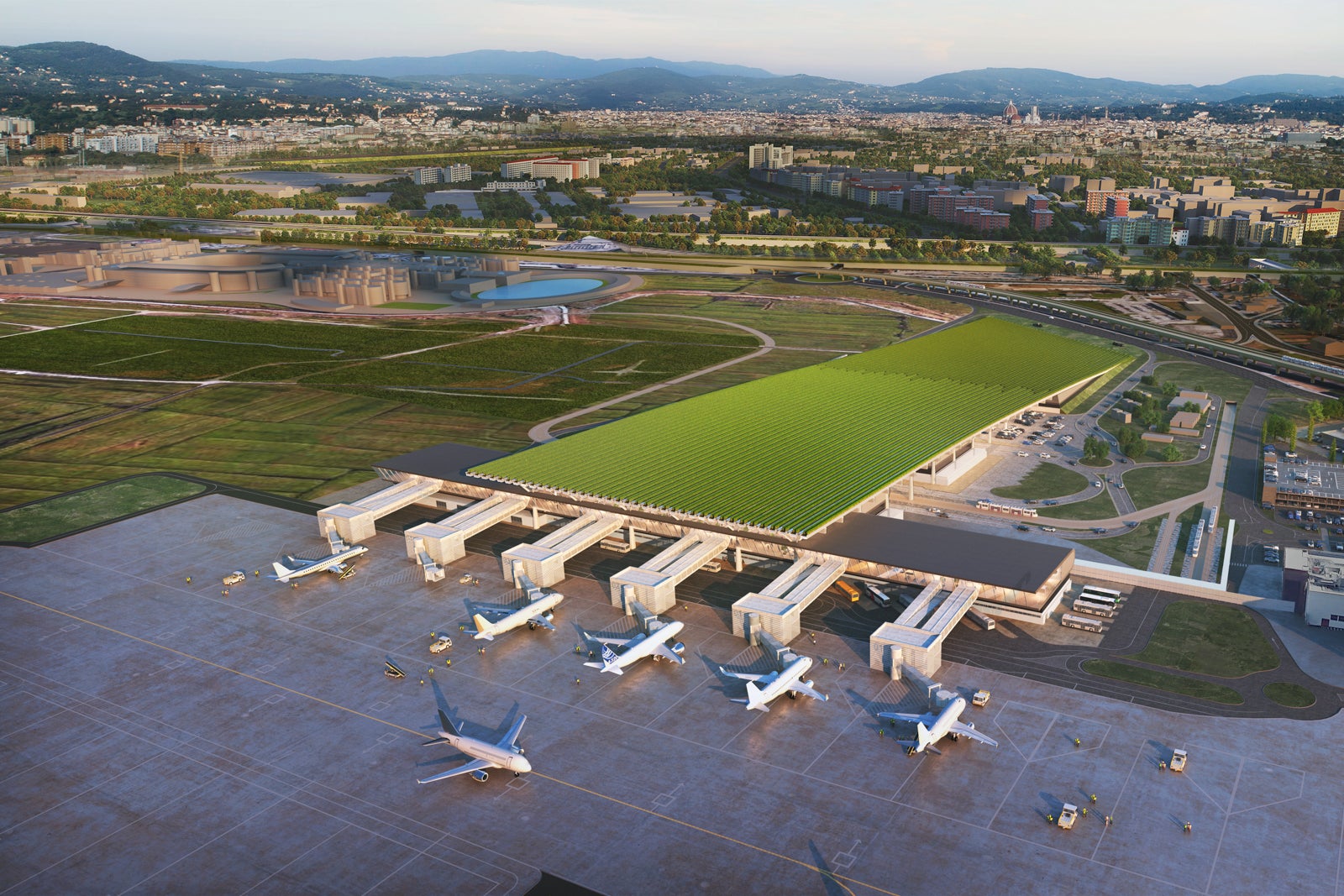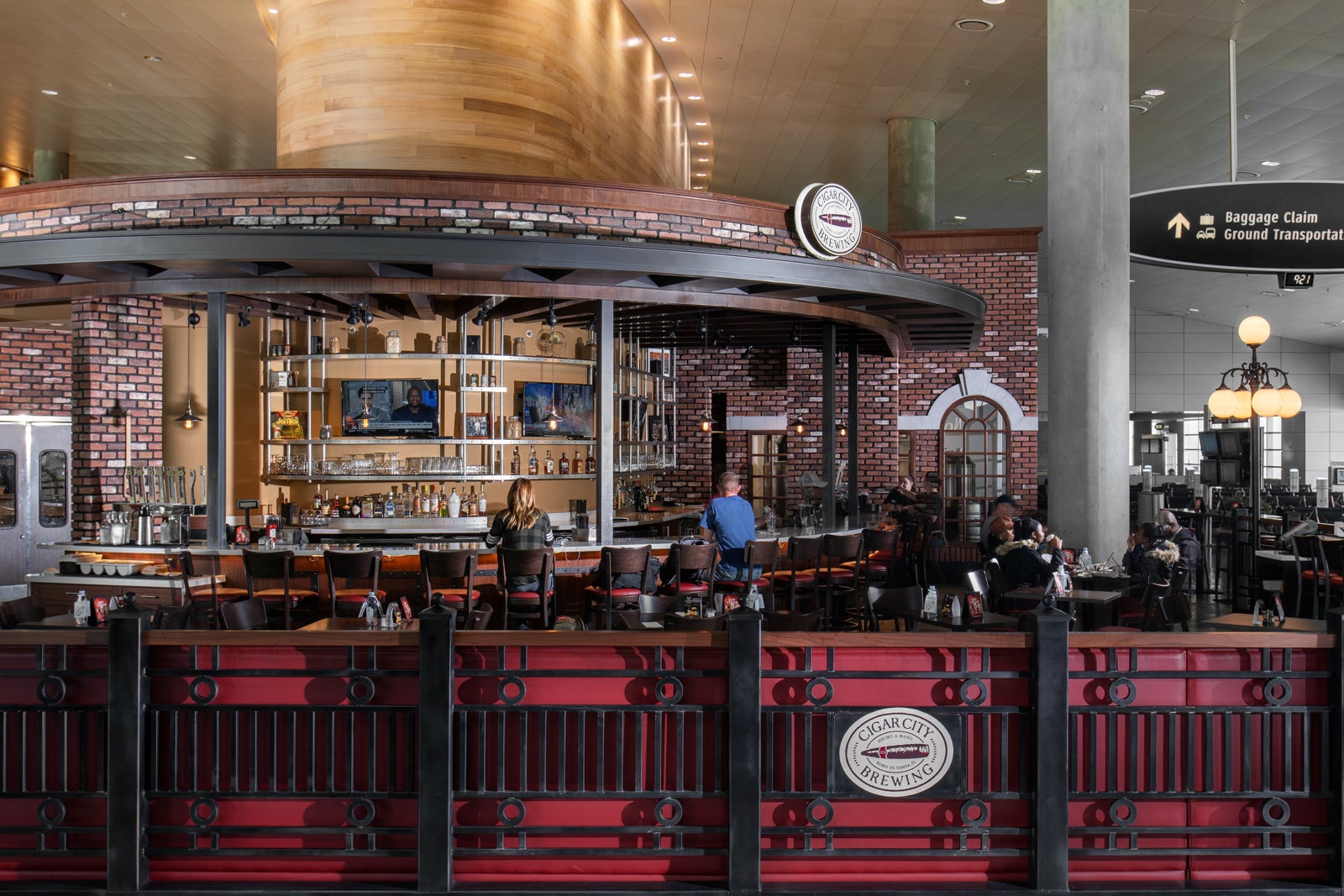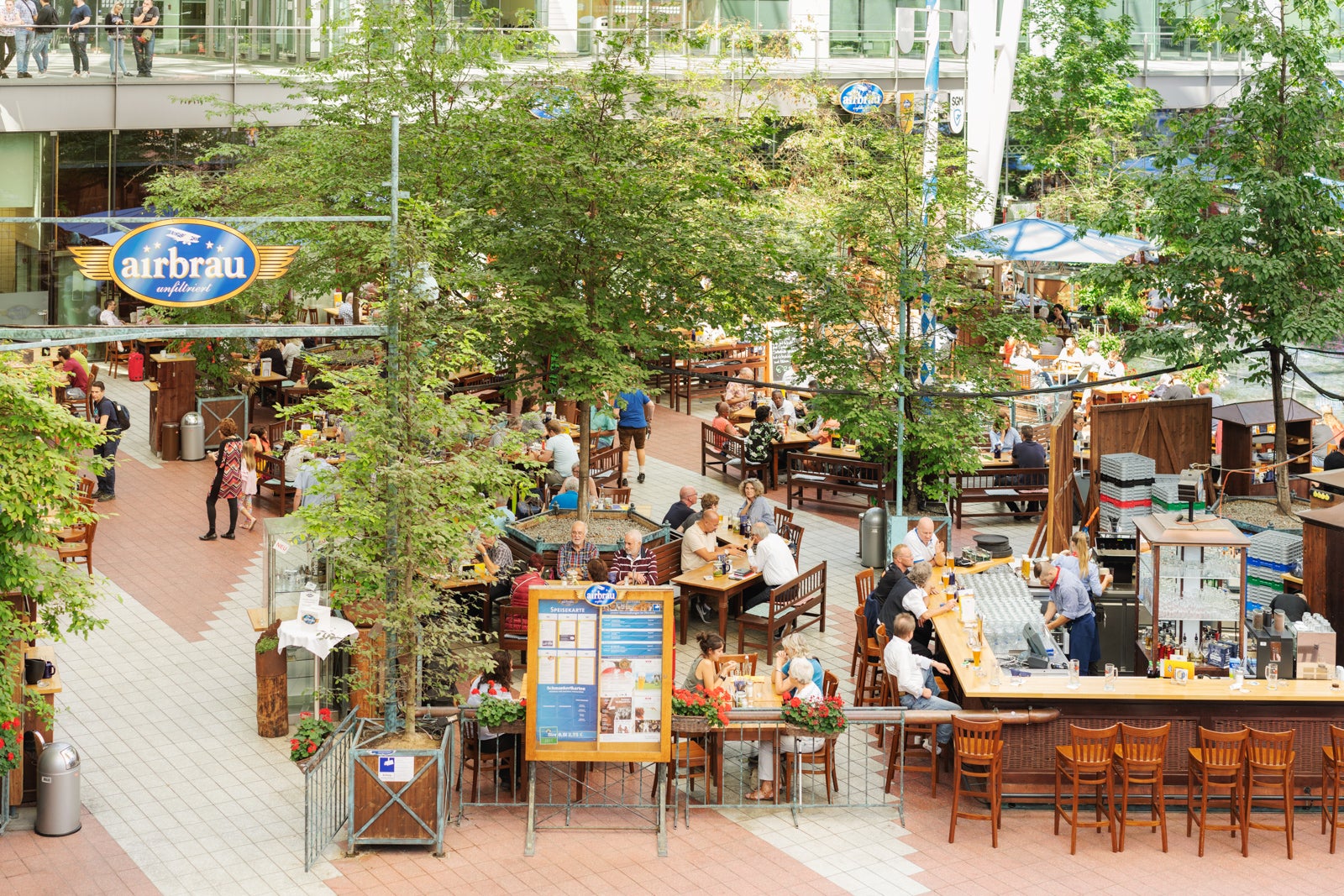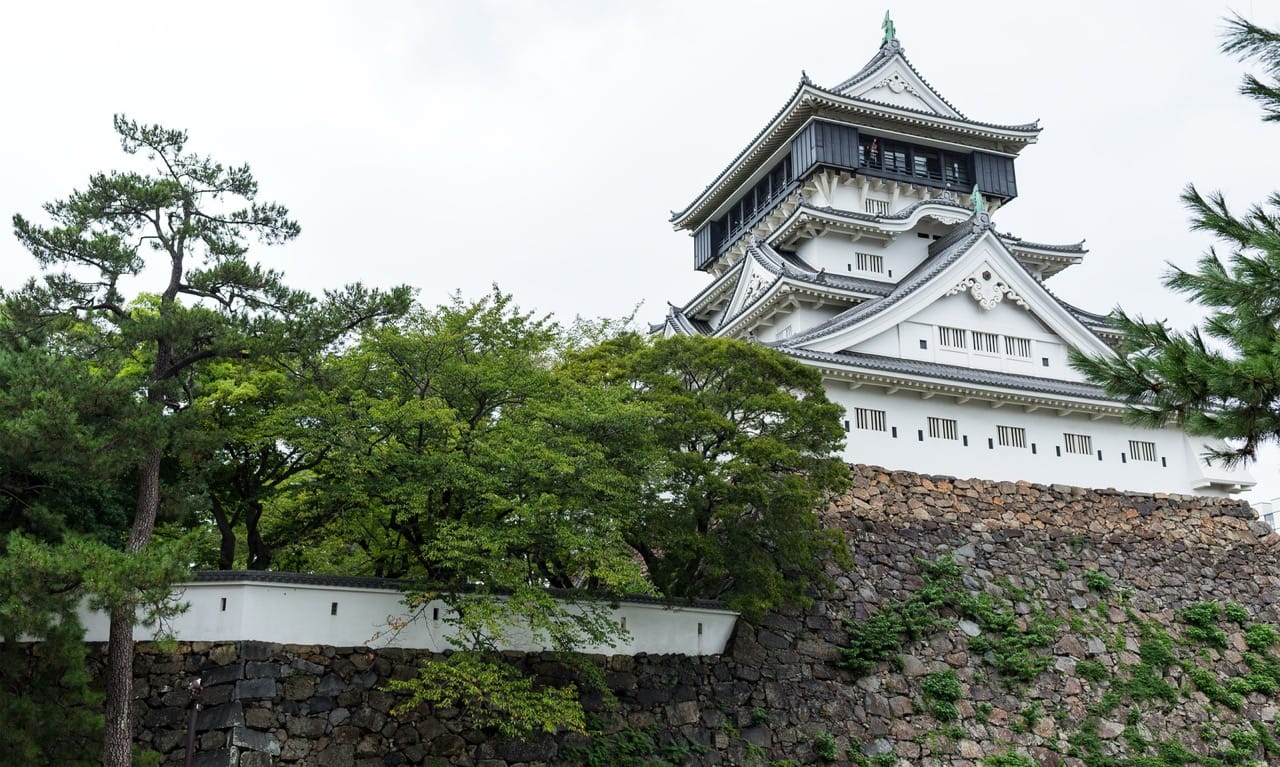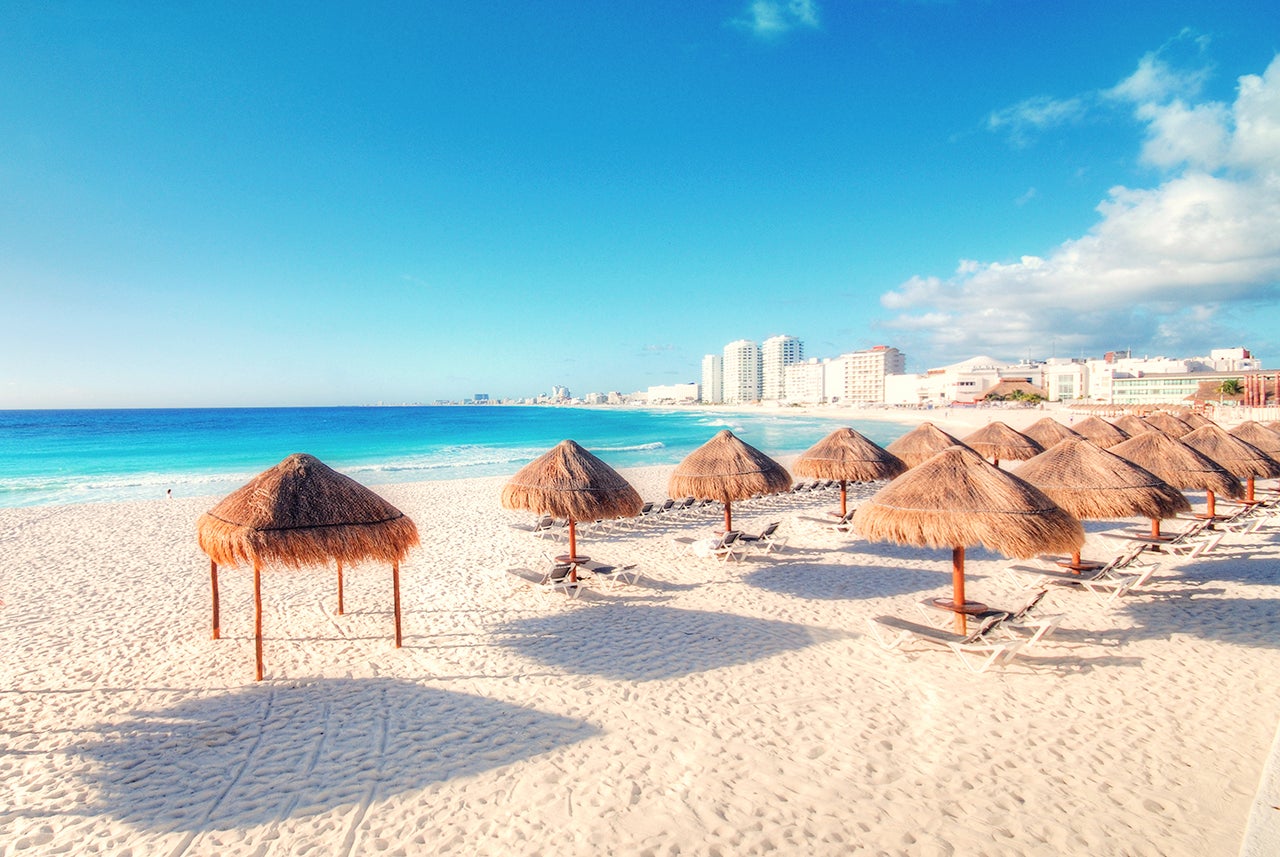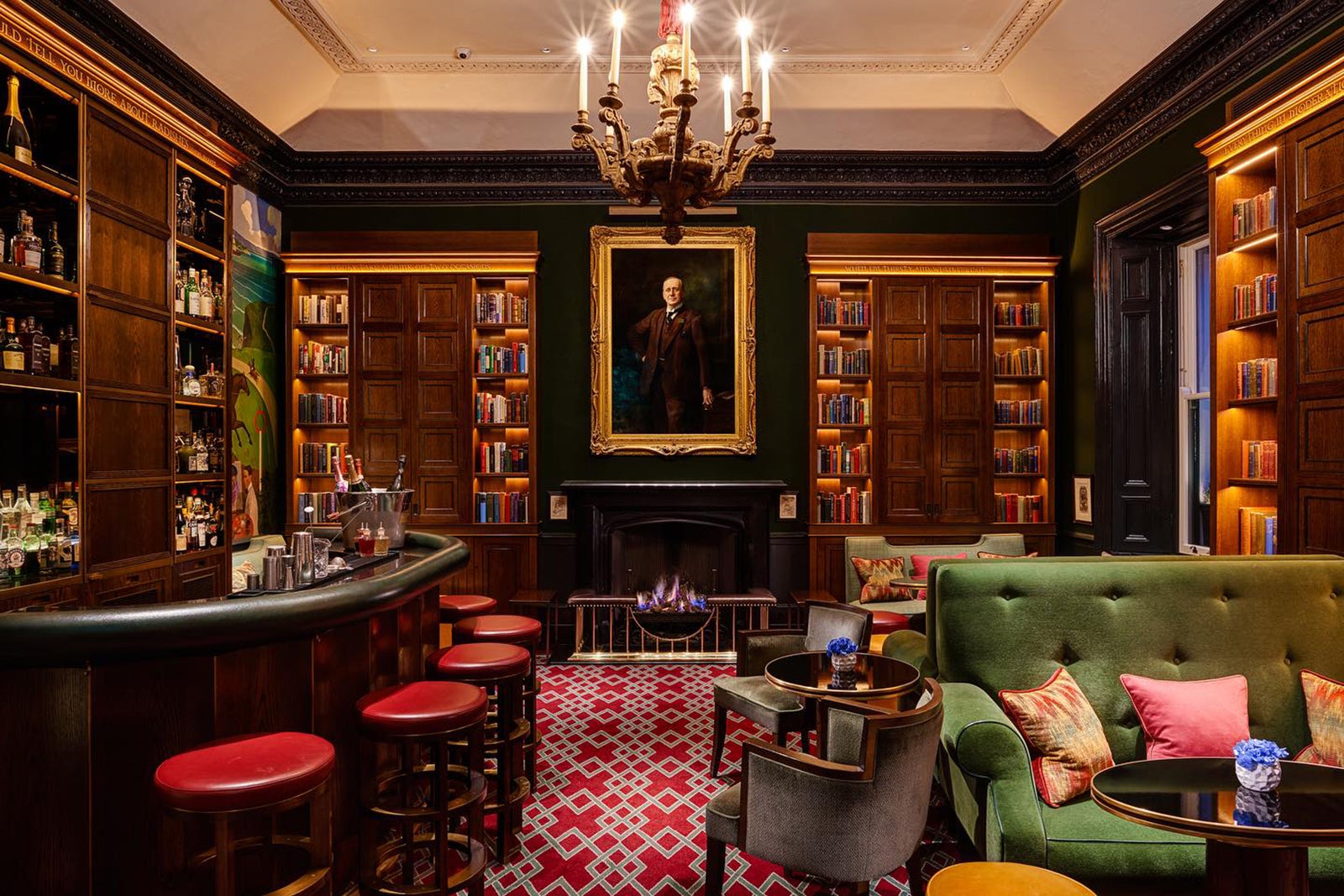A vineyard on an airport roof? We’ll drink to that
Some airports put their terminal and parking lot roofs to clever use by installing solar panels to generate electricity for day-to-day operations or backup power.
For example, more than 11,000 solar panels cover parking lot and building rooftops at San Francisco International Airport (SFO). When completed around 2030, the roof of New Terminal One at New York’s John F. Kennedy International Airport (JFK) will be home to 13,000 solar panels.
There will also be solar panels on the roof of the new international terminal being built at Amerigo Vespucci Airport (FLR) in Florence, Italy.
Want more airline-specific news? Sign up for TPG’s free biweekly Aviation newsletter.
Along with these solar panels, there will be a 19-acre vineyard that promotes and takes advantage of the airport’s location in Tuscany — the heart of Italy’s wine country. As a bonus, the rooftop vineyard will provide thermal insulation to help boost the building’s sustainability goals.
New York-based Rafael Vinoly Architects is the firm tasked with designing Florence’s new, sky-lit terminal building; it is expected to serve more than 5.9 million international passengers a year. According to the firm’s statement about the project, the vineyard-covered roof is designed so that it “peels off the ground to slope upwards with the terminal building beneath it.”
That enormous surface “hides the airport terminal when viewed from Brunelleschi’s Duomo and other prominent vantage points in the city,” the architects said. They hope the terminal, which will also have a new rail link to the city and region, “will not only serve as a new landmark for the city’s sustainable future, but also as a symbol of the traditions, history and innovative spirit that continue to drive the Italian economy into the 21st century.”
The 38-row rooftop vineyard will be cultivated and harvested by a vintner from the region. Better yet, plans call for the wine to be made from the airport’s vineyard grapes and aged in on-site wine cellars.
How to get in: Best credit cards for airport lounge access

Daily Newsletter
Reward your inbox with the TPG Daily newsletter
Join over 700,000 readers for breaking news, in-depth guides and exclusive deals from TPG’s experts
If all goes according to plan, passengers at the Florence airport will someday be able to visit the airport’s wine bar and drink what may be advertised as “roof-to-table wine.”
That day won’t come any time soon, though. The airport’s international terminal building will be completed in two phases: one by 2026 and the other by 2035. Plus, it takes years for vines and wines to mature.
While we wait for airport wine, there are some other airports where travelers can sip drinks brewed or distilled on-site.
At Florida’s Tampa International Airport (TPA), ales and lagers are brewed in a three-barrel brewhouse at Cigar City Brewing’s Brewpub and Taproom at Airside C, near Gate 43. One unique brew is created each month and served only at this site.
The Tivoli Tap House, in the Westin Hotel at the transit center just outside the doors of Denver International Airport (DEN), brews Jet IPA on-site.
The Nicholas Culpeper, which is before security in the North Terminal at London Gatwick Airport (LGW), has an on-site still that has been producing a London dry gin and tasty variations of it since 2016.
Victoria Distillers — headquartered in Sydney, British Columbia — operates a small distillery at Victoria International Airport (YYJ). The company makes a variety of highly regarded small-batch spirits.
It is best known for its indigo-colored Empress 1908 Gin made with butterfly pea blossom and inspired by a tea served at Victoria’s Fairmont Empress Hotel. The first active distillery at a Canadian airport lets passengers purchase bottles of gin that are filled, labeled, dated, personalized and sealed for them on the spot.
At Germany’s Munich International Airport (MUC), the Airbrau microbrewery creates three different types of freshly made beers year-round; it also makes four special seasonal beers, including a winter beer called “Krampus.”
The beer, along with a traditional Bavarian menu, is served in the Airbrau’s 400-seat restaurant and 600-seat beer garden between terminals 1 and 2. Access to both is open to passengers and non-ticketed visitors. Tours of the brewery, which opened in 1999, are available.
The Airbrau even has its own gin.
During the pandemic, when business at the airport and the Airbrau dropped off due to lockdowns, the Airbrau had more than 1,000 gallons of fresh beer that were going to waste. The creative brewmaster teamed up with an area distiller and the Hilton Munich Airport Hotel to create three gin-style “beer spirits” now available under the brand name “Mountain Hub Distillers.”
To create these spirits, beer brewed at the airport is sent to the distillery, where it’s distilled according to Airbrau’s recipe. Then it goes back to the airport for bottling and for drinking in the Airbrau and at the bar at the Hilton Munich Airport.

